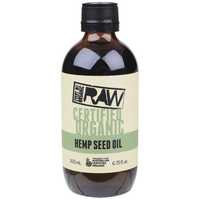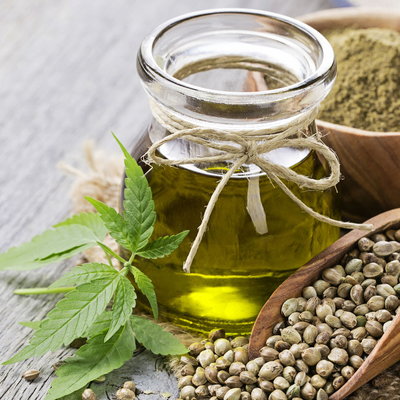Think hemp foods are only for vegetarians? It’s time to think again. More and more people are discovering the profound benefits that hemp foods have to offer and are starting to include these superfoods in their daily diet.
So if you’re looking to improve your health, boost your physical performance, and take your nutrition to the next level, it’s time to start getting some hemp foods into you.
Let’s take a closer look at some of the benefits so you can decide for yourself if you want to include hemp in your diet.
The Different Types of Hemp Food
Before we dive into the benefits and nutritional breakdown of hemp, let’s first identify the ways in which you can bring hemp into your diet plan.
Hemp seeds are one of the best ways to reap the benefits of hemp and have a nutritional profile that’s higher in fat, with healthy doses of protein and carbs (primarily in the form of dietary fibre).
Hemp seed oil is another great way to bring hemp into your diet plan and will provide you with a 100% pure fat source. It is very calorie dense, so a little will go a long way.
Hemp protein powder is going to primarily supply a punch of protein that your body needs. Although hemp protein powder does contain more fat and carbs than whey protein powders, keep in mind that they’re in healthy varieties, so they definitely aren’t something to avoid.
Though they may vary a little in their nutritional profile, however you consume hemp foods you’ll always be getting power-packed doses of antioxidants, vitamins, mineral, protein, fibre, essential fatty acids and so much more. Hemp is a great opportunity to add more variety to your diet and liven up some traditional fare that may need a nutritional boost.
Now let’s talk benefits.
Dietary Fat Profile of Hemp
First let’s look at the dietary fat found in hemp foods, as this is one benefit that definitely makes hemp stand out. Hemp seeds and hemp oil contain very rich doses of polyunsaturated fatty acids, including both omega-3 and omega-6 fatty acids. In addition to that, they’re also a good source of gamma-linolenic acid, which can help to stimulate skin and hair growth, maintain optimal bone health, regulate your metabolism, and ensure optimal reproductive health. They may also help those who are suffering from rheumatoid arthritis, and to help them better deal with their symptoms.
The omega-3 fatty acids are extremely powerful and one type of fat that most people aren’t getting enough of in their meal plan. Omega-3 fatty acids are critical for helping to improve insulin sensitivity, therefore reducing diabetes, enhancing lean body composition, preventing depression, improving heart health, and even contribute to the prevention of cognitive decline with age.
Being that they are rich in dietary fat also means they’ll help to better stabilise blood glucose levels when consumed, which can prevent energy high’s and low’s associated with blood sugar drops. This can also help to prevent unwanted fat gain as well.
Micronutrients In Hemp
Another great benefit of hemp foods is that they are a rich source of micronutrients as well. For instance, you’ll get good doses of phosphorus, potassium, sodium, magnesium, sulfur, calcium, iron, and zinc. These are all nutrients that will support active bodies.
Iron and zinc are especially important for those engaging in regular physical activity because they are involved in generating energy in the body, preventing fatigue during endurance activities, as well as creating the hormone testosterone. Males, in particular, are well-advised to make sure they are eating enough zinc in their diet, and hemp seeds can help them achieve that.
Calcium is also a mineral that is essential for building strong bones and regulating muscular contractions, so it’s another nutrient that shouldn’t be missed. If you aren’t consuming much dairy in your diet, eating hemp foods can definitely help make up for it.
Hemp Foods Reduce Inflammation
Inflammation is currently one of the leading causes of disease in our world, so everything we can do to decrease the amount of systemic inflammation is exceptionally beneficial.
Hemp foods help to dampen inflammatory responses in the body, largely due to the high amount of omega-3 fatty acids they contain. While hemp also contains omega-6 fatty acids, what make it extraordinary is that they are found in an ideal ratio of 6:3, so they don’t prove to be pro-inflammatory like some other foods with higher levels of omega-6 fatty acids.
Hemp May Decrease PMS Symptoms
As a woman, if you include hemp food in your diet plan, you may just find that they help to lessen the severity of PMS symptoms. PMS is something that causes many women to feel so unwell that they miss out on work or social engagements, so the more natural remedies they have, the better.
Gamma-linolenic acid (GLA) has been noted to produce a substance called prostaglandin E1, which reduces the effects of prolactin in the body, which then can decrease PMS symptoms.
Hemp Benefit Breakdown – The ‘Magic’
Hemp has long been known as one of the most nutritious plants in the world, however way you choose to consume this incredible superfood. To further illustrate the ‘magic’ behind hemp foods, here’s a quick nutritional breakdown:
- Hemp is rich in Polyunsaturated Fatty Acids in nature, like Omega 3 and 6 in a perfect ratio.
- Hemp is rich in protein – with a complete Amino Acid profile.
- Hemp is one of only five known sources of GLA (Gamma Linolenic Acid) - important for preventing inflammation.
- Hemp has 15 times CLA (Conjugated Linoleic Acid) as fish oil.
- Hemp is rich in Fibre.
- Hemp contains Phytosterols - helps to fight cholesterol.
- Hemp is rich in minerals including Calcium, Magnesium, Iron and Zinc.
- Hemp is rich in vitamin E plus other Antioxidants.
- Hemp contains B Vitamins including Folate.
- Hemp is the only known food-plant to contain Vitamin D3 - the bone-building sunshine vitamin.
So as you can see, there are so many great reasons to start including hemp in your diet. Whether you choose seeds, oil, or protein powder, just make sure that you get some of it into your meals today.
...and remember, qualified nutritionists at Healthy Being are available to offer further general advice to help guide you in selecting the right products. So please, feel free to contact us at any time!
.png) Shannon Clark is a qualified nutritionist and a regular contributor to Healthy Being Insights. She specialises in weight control and management as well as optimal fitness performance. She's devoted to helping readers obtain their own personal best health and fitness and stays on top the latest trends in the industry.
Shannon Clark is a qualified nutritionist and a regular contributor to Healthy Being Insights. She specialises in weight control and management as well as optimal fitness performance. She's devoted to helping readers obtain their own personal best health and fitness and stays on top the latest trends in the industry.


 Certified Organic
Certified Organic Vegan Friendly
Vegan Friendly  Vegetarian
Vegetarian Organic Ingredients
Organic Ingredients Dairy Free
Dairy Free Gluten Free
Gluten Free Keto Friendly
Keto Friendly






























